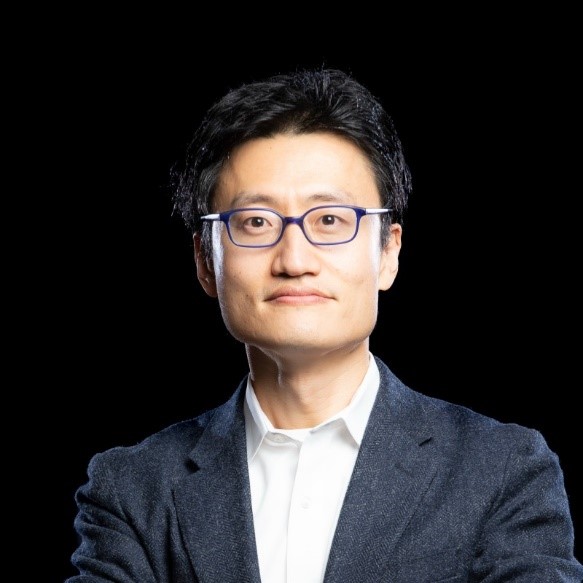Industry experts share possible developments in AI as we start off 2025 with an AI bang…
AI has been the talk of the town among technologists, academics, governments and even in public discourse over the last two years. And the interest and noise hasn’t died down in 2025.
If possible, the conversations are getting louder, as AI hits us in the New Year with a bang! Sifting through the noise, we bring you some expert predictions and opinions here instead:
Professor Jinhua Zhao, Lead Principal Investigator, Mens, Manus and Machina (M3S) Interdisciplinary Research Group (IRG), Singapore-MIT Alliance for Research and Technology (SMART):
As we approach 2025, artificial intelligence (AI) will soon be at the forefront of addressing some of the world’s most complex and long-standing societal challenges, from optimizing resource allocation to enhancing decision-making processes in industries such as mobility, education, and energy. AI’s potential to drive transformative advancements lies in its ability to ingest vast amounts of data to generate deep real-time insights, enabling more efficient, sustainable, and equitable solutions.

However, the true impact of AI will depend on how responsibly it is developed and deployed. Interdisciplinary and public-private collaboration will be crucial – bringing together expertise in behavioral science, technology, and policy as well as industry leaders and other stakeholders to guide responsible development and use of this technology. This will enable us to design AI systems that are not only innovative but also equitable, adaptable, and aligned with societal values – which will be imperative moving forward as AI becomes increasingly embedded in our daily lives.
Ryan Meyer, Managing Director, Asia Pacific, General Assembly:

Generative artificial intelligence (gen AI) has propelled automation forward across many industries. By 2025, many sectors will move beyond gen AI into hyperautomation, fundamentally reshaping operations by enhancing decision-making and surpassing standard automation that typically targets repetitive tasks.
This shift highlights the need to upskill and reskill employees rather than focusing solely on adopting the latest tech. While automating end-to-end workflows is exciting, organizations must remember that people drive these paradigm shifts.
As automation advances, we will likely see a surge in demand for specialized roles such as robotic process automation developers, AI/machine-learning engineers and digital transformation consultants. Equipping people to grow into new, specialized roles unlocks growth opportunities and new competitive edges, enabling businesses to harness emerging technologies effectively.
Skill gaps and outdated, siloed legacy systems will only hinder progress and be counterproductive to innovation. Organizations need to rethink their structures, move beyond conventional job descriptions, and prioritize equipping their workforce across various fields with upcoming, in-demand skills to make the most of these disruptions to traditional business processes.
Ricky Kapur, Head of Asia Pacific, Zoom:
In 2025, we will see new paradigms of work emerge. AI in the workplace will shift from one-size-fits-all solutions and surface-level automation to highly customized experiences that address the specific needs of businesses and employees.
As organizations adopt increasingly complex tech stacks, critical information often becomes dispersed across various platforms. Custom AI will play a pivotal role by integrating with internal systems and knowledge collections, quickly resurfacing relevant information, and enabling employees to focus on high-impact tasks.

For example, AI can retrieve an employee’s relevant project updates, automatically summarize key discussions, and assign actionable tasks, seamlessly managing workflows across multiple platforms.
At the same time, organizations must also prepare for a workforce of AI natives – incoming employees who have grown up with AI and now expect it to be seamlessly integrated into their daily workflows. The best talent will naturally gravitate toward organizations that fully embrace AI and empower their teams to use them effectively. Looking ahead, AI is no longer just a tool, but a critical driver of competitive advantage and long-term business success.
Beyond the workplace, customer experience (CX) will undergo a profound transformation. There will be a rise in the “everything customer”, where they expect to be recognized and have their needs met across all touchpoints. At the same time, delivering personalized CX will shift from being the responsibility of contact centers alone to an AI-first ‘total experience’ approach that involves every department shaping and delivering CX. This shared accountability across departments will help foster a supportive environment for agents, balancing AI-driven efficiency with the human touch to deliver personalized CX that meets rising customer expectations.
Together with enhanced agent performance and hyper-personalized anticipatory service, these changes will fuel a long-awaited rebound in customer satisfaction. Proactive outreach, once a nice-to-have, will become a baseline expectation, enhancing satisfaction and reducing churn across every touchpoint.
Nat Natarajan, Chief Product and Strategy Officer, G-P:

As AI becomes increasingly pervasive, it will evolve beyond just chatbot functionality into a much more sophisticated and embedded tool that can drive deeper, more meaningful interactions. While chatbots have proven valuable in customer service and support, AI in 2025 will expand its capabilities to become a strategic partner not only to respond to queries but also provide real-time insights, automate complex processes and predict trends.
This transformation marks the shift from generative AI to agentic AI will empower organizations to use AI in more proactive, intuitive ways, enhancing operational efficiency, personalization and innovation.
As AI matures beyond chatbots, it will become an indispensable component of business and daily life, moving beyond scripted conversations to truly understanding and solving human problems. Workers will become more comfortable using AI technologies and AI tools will be advanced enough to act with limited human oversight and involvement. As a result, we will see a large increase in the number of “AI advisors” and “AI coworkers”.
With companies of all sizes gaining access to advanced AI tools and technologies that were once reserved for large enterprises with significant resources,the democratization of AI is happening faster than expected.
Overall velocity will continue with the advancements in Large Language Models (LLMs), AI-as-a-Service platforms and user-friendly AI software, allowing small and mid-sized businesses to harness the power of AI to enhance decision-making, streamline operations and deliver personalized experiences to customers.
This shift will level the playing field, enabling businesses to integrate AI into their processes without the need for extensive technical expertise or massive capital investment.As a result, B2B AI will become a fundamental part of business strategy across industries, driving innovation, improving efficiency and offering new growth opportunities.
